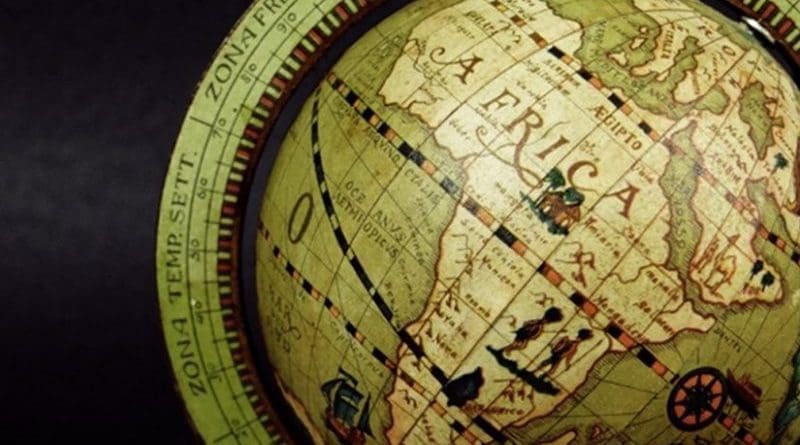Curing Africa’s ‘Father Of The Nation’ Syndrome – OpEd
Since many of them gained independence in 1960, sub-Saharan Africa’s modern states have faced certain archetypes that tend to resonate throughout the continent. From corrupt “Presidents-for-life” to poor governance, violent conflicts and endemic poverty, many outside observers tend to look at black Africa as the world’s political and economic backwater. Events in some countries have done little to change the tone of international headlines, with the conflict behind 1994’s Rwandan genocide seemingly repeating itself after Pierre Nkurunziza’s recent power grab in neighboring Burundi.
Beyond those stereotypes, however, Africa as a whole has taken a very real (and tragically underreported) step forward in its political development the past two years. Coverage of this year’s “Super Sunday” (to take just one example) focused largely on countries like Congo-Brazzaville, where strongman Dennis Sassou Nguesso wrote term limits out of the constitution in order to extend his 31 years in power. On the same day, however, voters in Benin made history by choosing businessman Patrice Talon to succeed outgoing President Thomas Boni Yayi, who stepped aside after serving the maximum of two five-year terms.
Benin’s election, like Nigeria’s the year before, has set a new benchmark for how well democracy can function on the continent. While international focus is on the growing trend of “third termism,” where leaders like Nkurunziza, Sassou Nguesso and Rwanda’s Paul Kagame rewrite electoral rules to stay in power, Boni Yayi stepped aside in accordance with his country’s laws and went on to see his party’s candidate, Prime Minister Lionel Zinsou, lose to Talon. While a stereotypical reading of sub-Saharan politics would have assumed some kind of maneuver to prevent the transfer of power, Zinsou instead publicly conceded the vote and congratulated his opponent. The transfer of power from Boni Yayi to Talon marks only the fourth peaceful leadership change in modern Benin’s history.
Even in countries where long-serving leaders are practically guaranteed to win new terms of office, the growing pressures of democratic reform and young, connected and tech-savvy populations are helping undo the political entrenchment of decades past. On April 10, voters in Chad will cast ballots for one of 14 presidential candidates. Chief among them is Idriss Déby Itno, a former general who first came to power in 1990 and introduced both the current constitution and elections in the 1990s. In 2005, Déby organized a referendum to do away with term limits at a time when Chad was dealing with destructive civil conflicts and violent tensions with neighboring Sudan. Since its troubles of a decade ago, both Chad and its president have come a long way in terms of stability and international standing.
In announcing his candidacy in February, Chad’s announced that he would re-institute term limits if re-elected, a stark contrast from his counterparts in Rwanda, Burundi, and Congo-Brazzaville. The country’s upcoming vote will also feature the use of biometric voter identification, a key opposition demand from past rounds of voting which the government acceded to and put in place. Compared to past elections in 2006 and 2011, between which rebels made it as far as the capital city of N’Djamena, Déby’s government has rapidly emerged as a vehicle for regional stability and a key Western ally. While its neighbors are locked in internal conflicts (particularly in Libya and northern Nigeria), Chad has not only stabilized itself but has taken a key role in African peacekeeping operations, notably alongside French forces in Mali and as part of the multinational fight against Boko Haram. Though Chad remains a fragile country, particularly with its ethnic and tribal cleavages, Déby’s military successes and diplomatic outreach (alongside a nascent oil industry) have provided the glue to keep it together.
In organizing a free and fair presidential contest, Déby faces higher stakes than his counterparts for another key reason: since January, he has served as President of the African Union (AU), a position that puts him at the forefront of continental stability operations and provides a seat at the table alongside the world’s most powerful leaders (such as at the G-7 summit in Japan next month). As the Nigerien journalist Seidik Abba explains in a recent Le Monde editorial, Déby’s efforts on the continent and overseas will only have credibility if he can set an example for a healthy election at home. Building off his reputation as a regional peacekeeper, the Chadian president has already spoken out in strong terms against Pierre Nkurunziza’s machinations in Burundi and advocated AU intervention. The political will for such a move, however, would only be within his reach if he can present a strong electoral mandate from his own people.
For all its promising signs, the African continent’s gradual turn to stable, peaceful multiparty politics is still in its infancy. The continent’s most entrenched strongmen will continue to do everything in their power to keep their seats, and many more political conflicts and protest movements (like the one which overthrew Blaise Compaoré in 2014) will come and go before lifetime presidencies and one-party rule is a thing of the past. Nonetheless, men like Nkurunziza, Sassou Nguesso, and Kagame would do well to take the Somali proverb to heart: “You won’t live forever, so leave a legacy.”
About the author:
Originally from London, James Lessons recently graduated from the University of Exeter with a degree in politics and international relations with a particular focus on the African region. He is currently working as a freelance research assistant and writer for a small economic risk consultancy.

